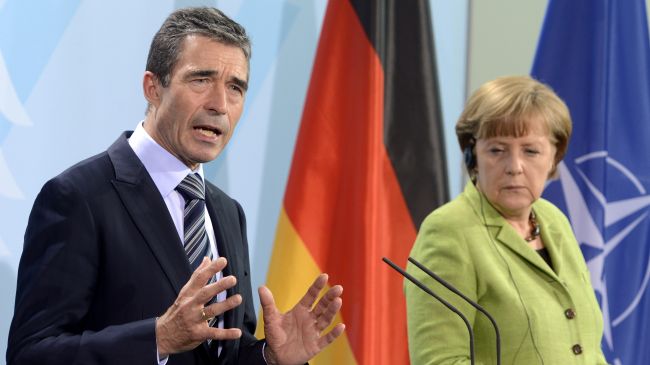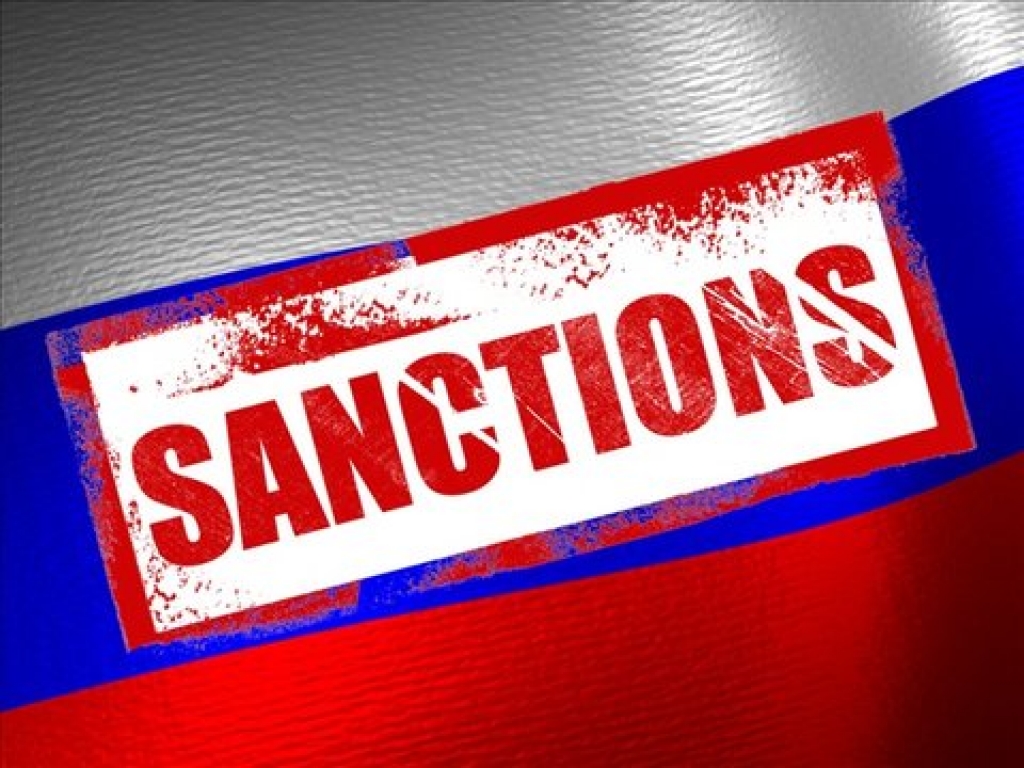The Berlin political scientist, Heiko Langner, speaking to Vestnik Kavkaza, summarized the results of the last year for the German-Russian relations and the German presidency of the OSCE, he spoke about the peculiarities and contradictions of the German foreign policy, as well as Russia's 'unrequited love' for Germany and the ways to improve bilateral relations.
- As part of its OSCE Chairmanship, Germany has proposed to start a dialogue to all member countries of the organization. It was, in particular, about the control of conventional weapons and measures to build confidence. According to the Minister of Foreign Affairs of Germany Frank-Walter Steinmeier, the trust can be created only through cooperation on specific topics. However, the year of the German OSCE Chairmanship came to an end. What goals has Germany achieved at the OSCE level?
- In times of increasingly growing tensions, the fact that an impetus to start a dialogue on problematic issues has been given under the German Presidency must already be regarded as success. Germany has made important proposals for the control of the Convention's arms, which has got clear support from the 16 OSCE member countries. These proposals involve, for example, the modernization of the Vienna Document, ie, an improved ability to monitor military activity, broader security intervals between the military units of NATO and Russia along the common border. However, the policy framework for the implementation of such measures are not optimal now, because the political climate between NATO and Russia is very "frosty", and the United States and Russia hold opposing priorities. In 2015, Russia finally politically left the Treaty on Conventional Armed Forces in Europe (CFE), however, it did not legally break a contract. The reason was that the US and other NATO countries have not ratified the Agreement on the Adaptation of the CFE Treaty taken at the OSCE Istanbul Summit in 1999. In parallel, NATO has consistently progressed to the Russian borders through the adoption of new members into its ranks. Against this background, Russia is seeking to agree on new measures to curb the arms, before negotiations to expand arms control could start. The United States takes the opposite position: it wants to intensify the arms control at first in order to discuss arms reduction in the distant future in case of success.

Germany's policy in these matters is also controversial. On the one hand, the German government has demonstrated the presence of its own position in the security policy through its proposals, which in some positions is in total contradiction with the US policy. But at the same time the Bundeswehr has taken a leadership role in the development of new NATO compounds and its military presence on a rotating basis in Poland and the Baltic states, which supposedly should minimize the danger of Russia's military aggression against those countries. But even in the unlikely case of such aggression, these military units would not be enough to repel it. That is, these NATO steps help to maintain the image of the enemy in the form of a Russian threat, which will allow the alliance to justify its own course of further arming. I believe that Russia will be guided by kind words spoken at diplomatic conferences to a lesser extent and more by the specific facts in the immediate area of its security. Accordingly, peace and security in Europe remain under threat.
- How would you assess the development the German-Russian relations against this background?
- The relations between Germany and Russia have deteriorated in recent years and are well below their capabilities. On the one hand, this is a consequence of a hot conflict in Ukraine, but also due to the described erosion of the CFE Treaty. Although Germany does not position itself against Russia, however, it always unequivocally takes the side of those who argued for the adoption and the extension of the EU sanctions against Russia. Such "educational pedagogy" leads to the opposite desired effect. An external pressure, as a rule, only reinforces the internal cohesion of those against whom the sanctions are directed. Just a cursory glance at the popularity ratings of the Russian president, which policy is now supported by 84% of Russians, is needed to understand it. Thus, the sanctions bring absolutely nothing, being an expression of double standards in politics.

- What is the role of the historical context in the current relations between Germany and Russia?
- Historically, the German-Russian relations are a changeable special relationship characterized by ups and downs. In a comparative cultural-historical research, for example, a significant commonality between the two cultures in philosophy, literature, art and classical music was established. Russian Germanophiles and German Russophiles have constructed a thesis about "a spiritual kinship" between the two nations a long time ago. Although I believe this thesis is wishful thinking, however, it shows the cultural closeness and emotional bonds, there were many such things in the past. The fact that the Russian representation of the population of Germany and Germans was characterized by sympathy for a long time, despite the monstrous crimes of German fascism against the peoples of the Soviet Union during the Second World War, is also not an accident. Russia's policy has always blamed the criminal Nazi regime for 27 million victims died in the struggle against Nazism on the territory of the USSR, and not the German people. The Red Army liberated not only its country from fascism, but virtually all of Eastern Europe and the German people. That is why there are significant sections of society in Germany, which want better relations with Russia in the future and do not demonize the Russian President Vladimir Putin. Taking this into account, the German government should urgently show more sensitivity in its policy towards Russia. The German government obviously does not even notice that there is a difference between Russia calling a country a "friend" and calling it a "partner." Germany has been considered to be a reliable "friend" of Russia. Perhaps the German government is already close to losing this status. In any case, it is unlikely, when they demonstrate "horrors" of Russia's military threat against Germany to the world, as it does not correspond to the strategic interests of Russia. I think it is a problem of a few politicians living in yesterday, which specialize in injection of anti-Russian sentiments and can not break the habit of thinking of the categories of the Cold War. This, however, does not mean that Russia does not make any mistakes in the Russian-German relations.

- What kind of mistakes do you mean and what, in your opinion, Russia should take to improve bilateral relations with Germany?
- Russia's policy is known for determining its strategic goals in accordance with clear interests. Germany is a one of the rare exceptions where this cannot be done in the usual extent. Russia has treated Germany as a unrequited love for some time. The German-Russian relations are an emotional issue for Russia, which is not necessarily a bad thing. But because of this, the Russian side often cannot understand why Germany renounces more independent policy and prefers close transatlantic partnership with the United States, rather than accepting Russia's proposals on strategic cooperation, which, as it seems Russia, correspond to indigenous German interests. But this conclusion is false, since Germany has constantly received great benefits from their transatlantic cooperation. Germany's status as one of the world's leading export nations is based on this cooperation, as well as its relatively low defense spending. After really existing socialism's downfall the political space for already united Germany has increased significantly.
In practice, there is the German hegemony in today's EU, which the EU countries hit by the financial crisis, like Greece, have already felt. The policy of "saving" imposed by Brussels is actually a policy of Angela Merkel. The current German policy does not wish to jeopardize the growing influence of Germany, by raising doubts of the US about Germany's loyalty to the Union, because Germany always tries to consider American interests in its own policy. But it does not mean in any way a waiver of an independent policy, but creates a specific modus vivendi for the most effective realization of its own interests. This is why the German government is in such disarray after Donald Trump winning the US presidential election, as it is still unclear to what extent he will continue following the transatlantic priorities.
The transatlantic partnership with the United States, however, does not initially rule out the cooperation between Germany and Russia - as long as Moscow does not begin to nourish too high expectations. I think that initially the Russian government considers international policy as a zero-sum game, in which one actor's wins certainly mean the loss of another. In relations with Germany the concept of win-win is much more promising, because all the German governments have followed this idea. This means that the political fields should be identified, which offer incentives for cooperation even in the current tense situation. In my opinion, we should talk about the convergence of the two countries' people. This means that there should be more twin cities, a greater cultural cooperation, a cooperation between universities, youth exchange ... The strong foundation of relations at the level of civil society will be able to create a strong ligament, which will sustain even political challenges.
The EU sanctions are meaningless, they harm the German economy, and must be abolished. The economic relations will be very quickly restored in this case. I do not think that Russia transferred its policy towards Germany from the "friendly" regime into the "enemy" one. That is why Moscow should distance itself from actions, which may cause the opposite impression. For example, the intervention of the Russian media and even the Russian policy in the case of the imaginary rape of the Russian German Lisa in the beginning of 2016. The German government bluntly rejected the claim of the Russian side, in which it was supported by the majority of the German population. Such Russia's actions harm its own interests. However, I assume that the motive for such action was not Russia's aggression, but a deep-seated frustration of Russian policy in relation to the German government's position of repelling and the lack of progress in the German-Russian relations.






